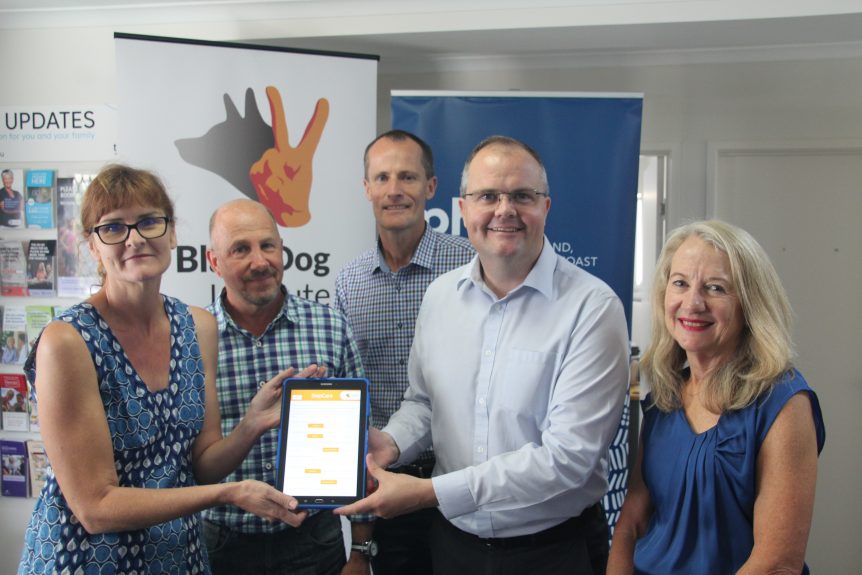Federal Government funding has enabled ten general practices across the Central Queensland, Wide Bay and the Sunshine Coast to roll out StepCare, an innovative digital screening and treatment service for common mental health conditions.
Federal Member for Fairfax, Mr Ted O’Brien said the service, funded by CCQ would provide new opportunities for general practices to identify and treat mental health conditions.
Mr O’Brien said patients would complete an online questionnaire on a tablet in the GP waiting room to identify people with potential mental health issues.
“A patient might have an appointment with their GP for a separate health complaint but the new screening service could detect if they were also feeling anxious, stressed or depressed,” said Mr O’Brien.
“Most people who have underlying anxiety or depression don’t actually seek specific treatment so this is another way to identify people and start the conversation.”
“It’s the first screening tool like this and it’s fantastic that six Sunshine Coast clinics will be offering this service to their patients.”
Suncoast Christian Health Centre owner, Shanti Herbert said over 85% of Australians had seen a GP in the past 12 months.
“GPs are often the first port of call for people seeking help with a mental illness,” Ms Herbert said.
“We’re in a great position to be offering better support and guidance for mental health and emotional wellbeing issues.
“We want to contribute to an environment where people can speak openly about their mental wellbeing.”
Suncoast Christian Health Centre GP, Dr Stephen Gipps said results from a patient’s survey went directly into their GPs computer system.
“By the time you come in for your consultation I have the results. This allows us to start a conversation about your mental and emotional wellbeing,” Dr Gipps said.
“Your responses might show you are experiencing higher levels of stress due to an underlying anxiety condition. By identifying that issue early there is a better chance of preventing a more serious condition.
“We can also discuss an appropriate plan to help you achieve certain goals like reduced stress or better sleep.
“Your progress is monitored through online surveys over 18 weeks. As a GP this allows me to check your mood and wellbeing while providing an opportunity for follow up care.”
StepCare was developed by the Black Dog Institute and trialled in general practices in urban, rural and regional NSW. Data from the trials showed that 19% of patients showing symptoms of depression or anxiety had not talked to their GP about their mental health in the past.
“This shows that StepCare is effective at identifying people who may not have sought help for mental health issues,” Black Dog Institute’s StepCare Program Manager Dr Elizabeth Hanley said.
“The program is about supporting GPs and improving the opportunities to screen and monitor mental health issues and match appropriate services to the needs of the individual as early as possible.”
PHN Senior Manager, Robb Major said the data showed more than 74,000 people in the PHN region would require treatment for mild to moderate mental health concerns.
“In our region we could almost fill the Gabba twice with the number of people needing support to improve their mental wellbeing,” Mr Major said.
“Early intervention can make a huge difference in reducing the impact and duration of mental illness.
“There is no one size fits all approach to mental health but new technologies like StepCare have made it possible to improve how we identify and support people in emotional distress.”

